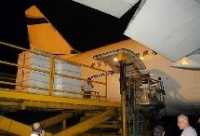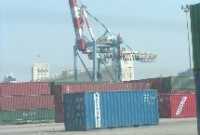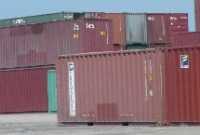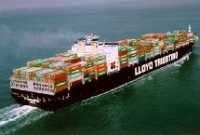Mr. Oded Tira, President of the Israeli Manufacturers Association ( IMA) said in a press release that the Ports' workers strike cut industrial exports and import of raw material for industry, excluding diamonds and fuel, by 19%, in real terms, in July, compared with the monthly average for the second quarter of 2004.
Mr. Tira emphasized that Israeli Industry cannot bear any more port strikes. The direct and indirect damages from the ports strike are still accumulating. He believed that at least one to two months will be needed to close the backlog of work at the three ports.
According to Tira, exports by all industrial sectors fell dramatically in July. 60% of the drop in industrial exports can, according to IMA economists, be attributed to 24% drop in exports by medium-high technology industries; 30% by a 11% drop in high-tech industries; and 10% by a 24% drop in low technology industries.
The drop in high-tech exports was, according to Tira, less than in the other two sectors because of the rise in these exports. Most electronic systems ,components and pharmaceutical products are exported by air.
Imports of raw materials by all industrial sectors also fell. Imports of iron and steel, rubber and plastics, cloth and thread, and material for the paper industry fell by 40%. Imports of machinery and equipment fell 12% in July, after rising 20% in the first six months of 2004.
The strike is considered by the IMA as the most destructive ever to be experienced in Israel. Its seriousness is attributed to its long duration and due to the fact that for the first time ships had to unload containers destined for Israel at other ports in order to continue their routes.
The strike created also an acute shortage of empty containers mainly due to the fact that some 30,000 – 40,000 containers were unloaded by shipping companies during the strike, in several nearby ports and the collection of which is a long logistic operation.
Tira : ports strike caused a 19% dive in exports
Mr. Oded Tira, President of the Israeli Manufacturers Association ( IMA) said in a press release that the Ports' workers strike cut industrial exports and import of raw material for industry, excluding diamonds and fuel, by 19%, in real terms, in July, co
30.08.04 / 00:00
•
More articles that may interest you

Manufacturers Association: 5 million dollars required to subsidize air lift during ports strike

U.S. Customs delegation visited Israel to examine textile's FTA rules of origin

Export to China – trade indicators are favorable

Israeli shippers council will claim damages from striking port workers

Zim relocates its regional hub from Haifa to Taranto

Lloyd Triestino upgrading Intra Med Services
More news from Industry & Trade Section
>Chamber of Commerce : foreign trade up by $4.2 billions in first 7 months/27.08.04
>Federation of Customs Brokers: Customs service will go on strike beginning of September/23.08.04
>July 2004 – indicators show fall in trade with E.E.C, increase of exports to the U.S.A./23.08.04
>In the First Half of 2004, GDP Increased at an Annual Rate of 4.1%/19.08.04
>End to the long diputed origin status between Israel and the EEC/16.08.04
>Israeli Customs uncovered multimillion shekels purchase tax fraud/16.08.04
>A delegation of indian businesswomen visited Federation of Israeli Chamber of Commerce/16.08.04
>Exports to Latin America registered 8% growth in first half/16.08.04
>700 smuggled cigarettes master cartons siezed by Customs/16.08.04
>68% increase in Exports to Arab countries during first six months of 2004/09.08.04
